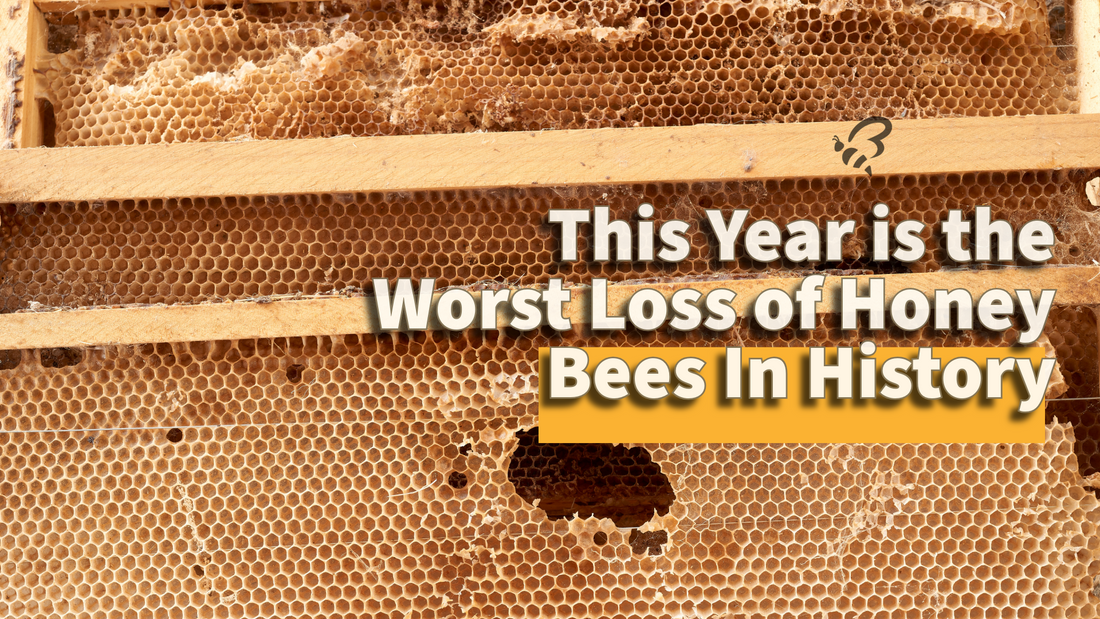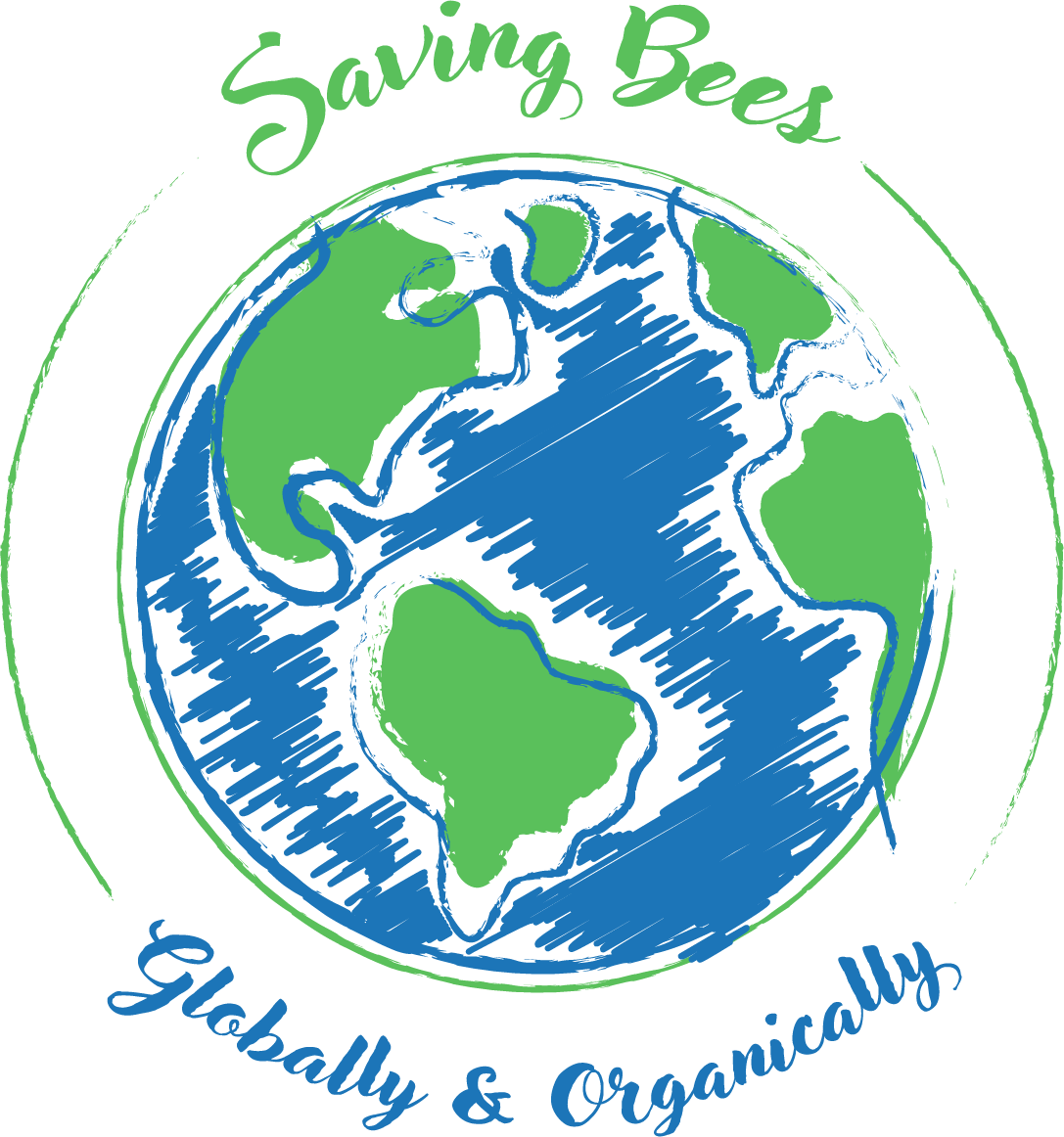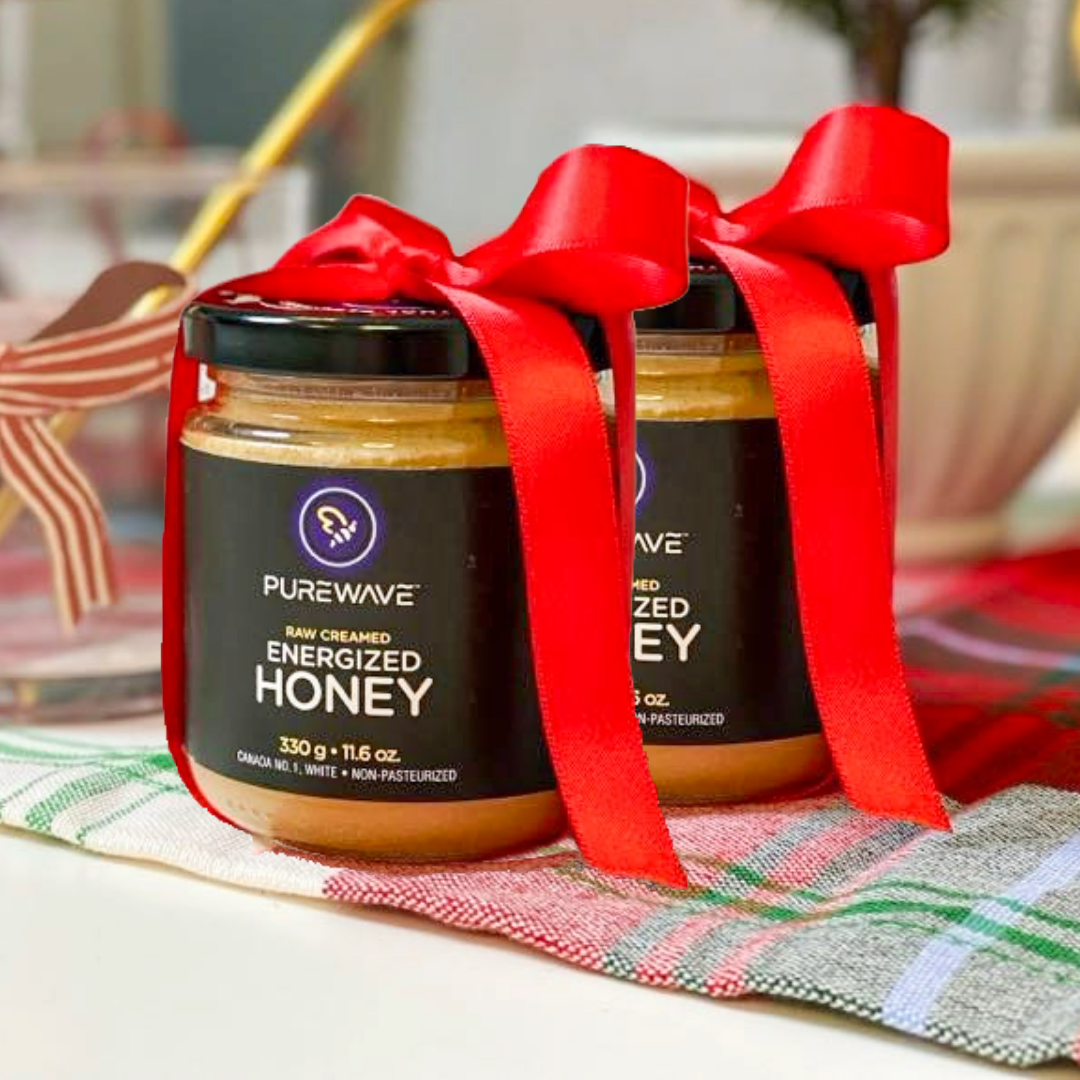
This Year is the Worst Loss of Honey Bees In History
Share
The growing loss of bees and pollinators is reminiscent of the Colony Collapse Disorder (CCD) conditions which were first reported in 2008 when bees suddenly disappeared from their colonies.
During the inspections by field scientists at that time, deceased colonies often died with ample honey stores, leaving small patches of brood, with most or all the adult bees missing. Similar severe losses were seen two years ago, when beekeepers in Florida lost up to 90% of their colonies, incurring millions in lost revenue.
At that time, these beekeepers worked alongside the USDA-ARS Bee Research Laboratory in Beltsville, MD to sample and identify parasites, pathogens and pesticides involved in the sudden declines. Chemical exposures were also analyzed and are still awaiting publication.
In January of this year, beekeepers have again discovered sudden losses. A collaborative project between Project Apis m., The American Beekeeping Federation, American Honey Producers Association, along with apiculture extension programs and beekeepers allowed for the rapid collection of real time information to determine if these losses were regional or widespread. They quickly determined that the losses are nationwide and extremely severe. They have not yet identified the causes but the usual causes of loss, such as winter management and high levels of parasitic mites, have been ruled out.
What we do know is that urbanization, agriculture, and deforestation are drastically reducing the natural habitats that bees depend on for food and shelter so habitat loss is a major factor. The widespread use of pesticides, particularly neonicotinoids, has been closely linked to bee deaths. These chemicals can disrupt bees’ navigation, reduce their ability to reproduce, and weaken their immune systems, making them more susceptible to disease. The use of chemicals and pesticides could be why bees are so vulnerable to various diseases and parasites, such as the Varroa mite, Nosema and Lotaria Passim, which can destroy entire colonies.
So what can we all do to help change this?
Plant Pollinator-Friendly Gardens: One of the best ways to support bees and pollinators locally is by creating a pollinator-friendly environment with a variety of native organic flowers that bloom throughout all of the seasons, providing a steady source of nectar and pollen for bees and other beneficial pollinators.
Eliminate Pesticide Use: The use of harmful pesticides in your garden or farm is harmful to humans, animals and insects. If pesticides are necessary, choose natural options and pollinator- friendly choices and apply them at times when bees are less active, such as early morning or late evening.
Create Bee-Friendly Habitats: Leave areas of your garden wild to enhance biodiversity and don’t rake all your leaves off the lawn but leave some areas to provide shelter for bees. This can make a big difference in supporting local bee populations.
Advocate for Policy Changes: Support legislation that protects pollinators by promoting
sustainable agricultural practices, reducing pesticide use, and preserving natural habitats. Collective action is essential to ensure the survival of bees.
Educate Other People: Raising awareness about the importance of bees and the challenges they face is vital. The more people that understand the importance of this issue, the more we can do collectively to protect bees and diverse pollinators and the crucial role they play in our ecosystems and our survival.
Share The 4RBees Mission: Help people understand the importance of our mission at 4RBees where every product purchased helps save and protect more bees.
Tell them about our products and how beneficial they could be for them personally and how it all goes toward helping save the bees and the planet.
Let them know that every product purchased goes directly towards saving more bees and planting more organic biodiversity for all pollinators.
We can do this! We can change the course of bee losses and we’re proving it every day. We just need more people to know about us and help us out.
We’re all responsible and we’re counting on all of us as humanity to come together and save the bees and save ourselves.
Together we can do anything.
Together We Can Do This!



